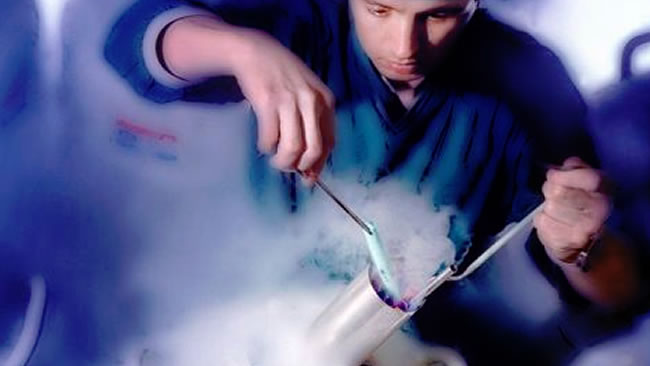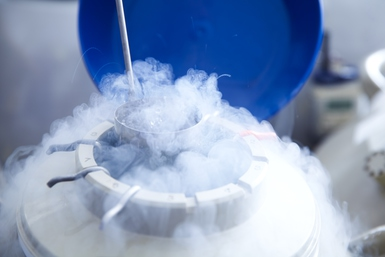
The best physicians in the field of infertility and egg donation come to Charleston to discuss high-tech advancements
One of the most important medical conferences in North America focusing on the field of Infertility Medicine is being hosted by Charleston’s own Coastal Fertility Specialists, March 5 – 8, 2015 at Belmond Charleston Place Hotel.
The symposium will focus on the latest advancements in the field of Infertility and Egg Donation and Reception. A nationally recognized panel of doctors, scientists and other health professionals will address their fellow colleagues including reproductive endocrinologists, lab professionals, nurses and mental health professionals in this rapidly expanding segment of medicine.
Highlights of this year’s conference include:
“Egg Freezing: Legal Implications”
By Susan Crockin, Esq.
“Egg Donation: The Long Term Impact on Donors”
By Andrea Braverman, PhD
“Complexities of Surrogacy: Bad Things That Happen”
By Andy Vorzimer. Esq.
In addition, experts will discuss the intricacies of the donor egg process and how infertile couples can be helped from donor egg programs and other state-of-the-art treatments. There will also be an array of other topics discussed by highly accredited speakers during the symposium.
The 17th Annual ART of Donor Egg and Third Party Reproduction Conference
Conference Schedule
Friday, March 6 – 8 a.m. –12:15 p.m.
Saturday, March 7 – 8:30 a.m. – 1:30 p.m.
Sunday, March 8 – 8:30 a.m. – 12 p.m.
For more information or to schedule interviews contact Susan Sellers at 843-343-2088 or This email address is being protected from spambots. You need JavaScript enabled to view it. or Holly Clayson at 843-412-4894
This email address is being protected from spambots. You need JavaScript enabled to view it..
Egg Freezing Seminar Allows Women to Pause the Biological Clock for Age, Social or Medical Reasons
Atlanta Center for Reproductive Medicine invites women to attend a discussion and social gathering on March 30 to learn more about egg freezing. Build your family when the time is right for you.
Atlanta, Georgia (PRWEB) March 05, 2015
Considering egg freezing? Atlanta Center for Reproductive Medicine (ACRM), Atlanta’s top fertility practice, is holding an informational event on March 30, where women can learn how to proactively plan for future families with egg freezing.
The Facts About Egg Donation
For a woman who has been through a number of failed IVF cycles, egg donation gives new hope, while for women who are unable to provide eggs for IVF, it offers a reasonable alternative.
There are many reasons why a woman may be unable to produce eggs including genetic diseases, chemotherapy and unexplained infertility. But age is certainly a key contributing factor. By the time a women reaches her 40th birthday, adoption or egg donation may be her last remaining options.
“Egg donation has revolutionised fertility for older women whose egg reserve has diminished in both quality and quantity,” says Dr David Walsh of the SIMS Clinic.

“Every third patient of mine is using donor sperm, donor eggs or both.” The good news is that egg donation gives women a high probability of success. The success rates of egg donation are similar to that of IVF. More than half of the patients using this form of treatment should get pregnant within two major cycles. “This will vary from woman to woman because some people will get more embryos than others,” explains Dr Walsh. “The more embryos you obtain from the treatment, the greater number of chances you have of success. Beyond two rounds, it becomes increasingly unlikely that the treatment will result in a baby.
“Another reason for success is where donors have proven fertility with children of their own. We therefore know their
eggs are capable of reaching pregnancy. Secondly, research has shown that if donors have their own family they are much less likely to regret their decision further down the line.”
That said deciding to pursue the egg donation route is a big decision for couples – and not something to be undertaken lightly.
It is the classic dilemma. Your heart tells you that you want to be the genetic mother of this child, but your head tells you that you've got poor quality embryos and that you are likely to fail using your own eggs. But by introducing a third party into the treatment process, there will be a lot of very difficult questions to address.
Couples need to ask themselves how they feel about using a donor egg, who will they tell, and how will they address this matter with the child in the future.
Known versus anonymous donors
“I saw a patient today who is very lucky because her sister is not only able, but very willing to, donate her eggs to her,” continues Dr Walsh. “That is the ideal circumstance when going down this route.”
That said most women do not find themselves in this situation so they have to go to a third party for donation. In this instance a couple will come in for a consultation and if all of their tests work out properly the male will freeze a sample of his sperm. That sample is then shipped to the Ukraine or Czech Republic, the donor’s eggs are collected and the embryos are created.
The embryos are then frozen on day one before they start to divide. They are shipped back to the Irish clinic where they are thawed in the laboratory and transferred to the female’s womb.
Legislation
Recently, the Irish government has announced a plan to publish legislation which is likely to end the use of anonymous donor eggs or sperm.
This is on the recommendation of the Commission on Assisted Human Reproductions, who, in 2005 stated that children of donor eggs or sperm should have a right to information about their donor parents upon reaching maturity.
While the introduction of the legislation will no doubt grant children who have been born out of donor eggs and donor sperm more options and should completely eliminate the chance of incest occurring it brings its own set of challenges.
The problem is that this legislation could limit the supply of donors and create larger waiting lists. This is because there are far fewer identifiable donors available in this country.
While couples can still secure donor eggs and sperm abroad, the legislation will cause the cost of the treatment to increase for couples.
“Rather than embryos coming to couples, couples will now have to fly to the country where the eggs or sperm are being donated to complete the treatment. It adds an extra cost for the couple,” says Dr Walsh.
“The good thing is the patient will still have access to the treatment they need but I feel that they are being singled out and discriminated against in some ways. The barrier for those trying to have a baby with fertility problems is always set so much higher than for anyone else.”
Source: www.independent.ie
She’s just not that into you: China’s bachelors in crisis thanks to shortage of women
CHINA’s bachelors are in crisis. There just aren’t enough women to go around.
Figures released this month show that at the end of 2014, China had 701 million men and 667 million women — a shortfall of nearly 34 million.
With 120 men for every 100 women, China’s Bridget Joneses are now male, and increasingly desperate for a date.
The country’s media has begun advertising options for foreign wives, recommending women from Japan, South Korea and even Ukraine. Men are turning to online dating, advertising themselves on billboards and even hiring professional matchmakers, psychologists and stylists to make themselves more appealing.

The race is on for boys to find their future wives. Source: News Corp Australia
One in 10 fresh IVF cycles use donated egg and sperm
 One in 10 fresh IVF cycles used donated fertilised eggs or embryos, and a third of all patients were single or had registered with a female partner, reveal the latest figures on egg and sperm donation, issued by the Human Fertilisation and Embryology Authority (HFEA) today.
One in 10 fresh IVF cycles used donated fertilised eggs or embryos, and a third of all patients were single or had registered with a female partner, reveal the latest figures on egg and sperm donation, issued by the Human Fertilisation and Embryology Authority (HFEA) today.
Egg and sperm donation in the UK 2012-2013, which also includes figures on egg sharing, is the first time the HFEA Register’s donation data has been published in this form.
The figures additionally show that most donors identify themselves as ethnically white British or white other, with only low numbers of UK ethnic minority donors registering each year.
Arrange an appointment with us
We have fertility clinics located all over the UK and beyond, so your nearest clinic shouldn't be too far away.
Contact our UK Coordinator to arrange an appointment with one of our fertility specialists.
![]() +44 (0)800 689 1317
+44 (0)800 689 1317 ![]() +44 (0)7860 439346
+44 (0)7860 439346
![]() appointments@ukcfa.co.uk
appointments@ukcfa.co.uk
Enter the details of your enquiry and we will be in touch as soon as possible.
